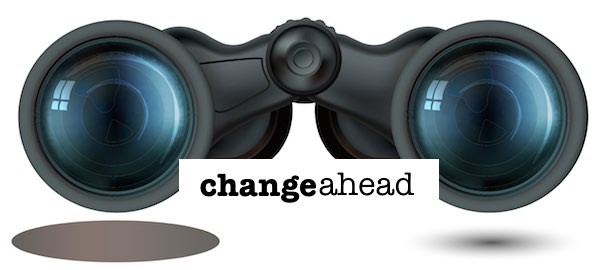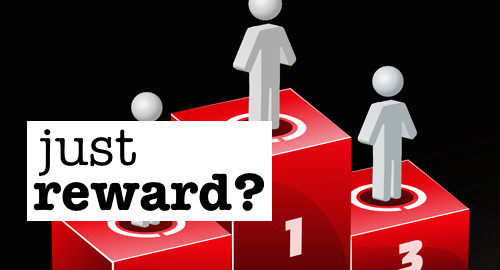Warning!: This is not a very helpful post. I’m just sharing because I have to. Feel free to round-file this post if you’re in a hurry. This isn’t important. I followed this series of links and found something at the end funny enough to make me chuckle, then giggle, then laugh until I cried. Your… Continue reading Don’t Speak From “The Cloud”
Category: executive
Successful Change Follows SEE FEEL CHANGE
In almost all successful change efforts the sequence of change is not “Analyze, Think, Change,” but rather, “See, Feel, Change.” “You’re presented with evidence that makes you feel something. It might be a disturbing look at the problem, or a hopeful glimpse of the solution, or a sobering reflection of your current habits– but regardless,… Continue reading Successful Change Follows SEE FEEL CHANGE
Read: Crucial Conversations
About time for me to read Crucial Conversations again.
If Leadership and Self Deception had a baby with ManagerTools.com it would be Crucial Conversations. The book takes an intensely personal view of leadership and combines it with an emphasis on observable behavior and concrete action. More good information in this book than you can absorb after only one reading.
I highly recommend the book. It is universally useful. If you ever talk to other people then you will eventually need the skills in this book.
Policies can unintentionally keep people from thinking
Policies established to create order often unintentionally keep people from thinking. “Let’s face it: corporate environments and modern organizations are the perfect setup for diminishing leadership and you have a certain built-in tyranny. The org charts, the hierarchy, the titles, the approval matrixes skew power toward the top and create incentives for people to shut down… Continue reading Policies can unintentionally keep people from thinking
Your Plan Needs an Insertion Ritual
The length of a single task is notoriously difficult to estimate. But without an insertion ritual estimates don’t even matter because no one consults them. It’s a free-for-all. Over a year ago I was part of a committee trying to improve our “on time performance.” Our conversation took me back to the heady days of… Continue reading Your Plan Needs an Insertion Ritual
Pretend you’re not afraid
“As he started out into the maze, Haw looked back to where he had come from and felt its comfort. He could feel himself being drawn back into familiar territory, even though he hadn’t found cheese there in some time. Haw became more anxious and wondered if he really wanted to go out into the… Continue reading Pretend you’re not afraid
Face the Uneven Dozen
After a couple of months as a manager I had my feet under me enough to look forward to the annual review cycle. The department had raises tied to the review cycle. Deciding how to portion out raises is critical. My time as a developer had done little to prepare me for it. I anticipated that at… Continue reading Face the Uneven Dozen
quitting often better than heroics
A lot of times it’s better to be a quitter than a hero. “For example, let’s say you think a task can be done in two hours. But four hours into it you’re still only a quarter of the way done. The natural instinct is to think, ‘but I can’t give up now! I’ve already spent… Continue reading quitting often better than heroics
Keeping Your Team from Burnout
An intern at Novell my first manager told me stories of his experiences with burn-out as an intern for IBM. He loved his work and put in extreme hours. Then one day couldn’t put his hands on a keyboard.
Allison Davis’ article How to Keep You and Your Team from Burning Out gives 6 actionable recommendations for protecting your team.
I’ve experienced burn out. Coworkers I respect have, too. Yet, I hesitate to write about it. It’s squishy. But it is real.
I’m not alone. At NGConf Igor Minar (Angular core team) spoke tentatively about his own struggles with burnout. His talk about mindfulness came just after my own exposure to it in a lecture series on the workings of the brain. Mindfulness is a great tool that studies have shown effective at managing stress and improving mental wellbeing.
Read Davis’ article.
My quick advice is:
Remove heroics from your list of options
Get it done in normal time with normal effort. Don’t do heroics. Don’t ask for it from your team.
innovations rarely have but one parent
Most of the innovations of the digital age were done collaboratively. Walter Isaacson, The Innovators. Chapter 1, 1m 0s


